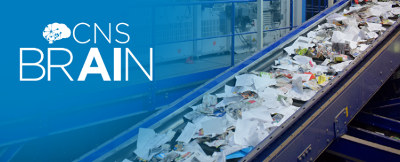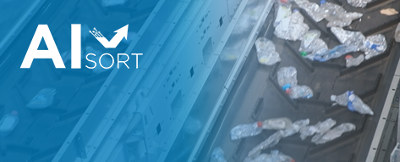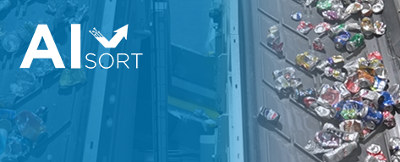With over 20 years of experience in the recycling industry and over 3,000 machines installed worldwide, Pellenc ST supports operators and municipalities by providing intelligent and connected sorting solutions to modernize their industrial tools and meet the 4.0 industry standards.
Pellenc ST’s sorters operate in more than 40 countries to sort and recover materials from various waste sectors: MRF, MSW, WEEE, ASR, C&I, C&D, textiles. The technologies used to sort these materials are infrared and visible spectroscopy, induction, and X-ray. Artificial intelligence is now being used in addition to existing solutions to address the most complex sorting applications.
Brand-New AI Solutions
At Pellenc ST, artificial intelligence complements existing solutions to boost and provide peak performances and help customers monitor their operations and the quality of sorting processes. Artificial Intelligence modules can be found in the equipment through hardware (the addition of a super-powerful computer vision) and software. They are available as an option on new machines or as an upgrade on the Mistral+ CONNECT and COMPACT+ ranges.
Paper
 By combining DEEP LEARNING and NIR/VIS technologies, the optical sorters designed by Pellenc ST can now handle the most complex material separations. For example, specific models have been created to differentiate precisely between magazines from coated cardboard, or white cardboard from office paper. Moreover, the short distance between the detection head and the ejection bar guarantees extremely precise ejection, halving the loss of good products. In this application, we reached exceptional performance levels, achieving over 90% efficiency, with losses under 2%, and increasing paper purity to over 96% without compromising overall efficiency. Quick to implement, this CNS BRAIN innovation in Artificial Intelligence stands out for its energy efficiency. It requires no additional hardware or storage server. Ready to use, it therefore generates no extra energy consumption.
By combining DEEP LEARNING and NIR/VIS technologies, the optical sorters designed by Pellenc ST can now handle the most complex material separations. For example, specific models have been created to differentiate precisely between magazines from coated cardboard, or white cardboard from office paper. Moreover, the short distance between the detection head and the ejection bar guarantees extremely precise ejection, halving the loss of good products. In this application, we reached exceptional performance levels, achieving over 90% efficiency, with losses under 2%, and increasing paper purity to over 96% without compromising overall efficiency. Quick to implement, this CNS BRAIN innovation in Artificial Intelligence stands out for its energy efficiency. It requires no additional hardware or storage server. Ready to use, it therefore generates no extra energy consumption.
Food/Non-Food Separation
 For the most complex sorting applications, Pellenc ST equips its machines with an additional camera and offers the AISORT option. The recovery of food-grade plastics has been a challenge for the recycling industry, as food and non-food packaging are often made of the same or very similar material. Conventional sorting systems therefore have a difficult time distinguishing and sorting the packaging. With AI modules and multi-sensor fusion, optical sorters can address use cases that have remained unresolved until now and gain high-quality recyclates through accurate sorting. Artificial intelligence is now required to sort PET, PP, PS, and HDPE streams according to whether they have had contact with food or not.
For the most complex sorting applications, Pellenc ST equips its machines with an additional camera and offers the AISORT option. The recovery of food-grade plastics has been a challenge for the recycling industry, as food and non-food packaging are often made of the same or very similar material. Conventional sorting systems therefore have a difficult time distinguishing and sorting the packaging. With AI modules and multi-sensor fusion, optical sorters can address use cases that have remained unresolved until now and gain high-quality recyclates through accurate sorting. Artificial intelligence is now required to sort PET, PP, PS, and HDPE streams according to whether they have had contact with food or not.
Used Beverage Can (UBC)
 The AISORT option also addresses a long-standing challenge for metal packaging waste streams. With this AI module, optical sorters can quickly analyze and solve the most complex classification tasks, including cleaning an aluminum stream. They maximize recovery and reach a purity of used beverage cans in aluminum up to 99%, removing non-UBC aluminum such as aerosols, food cans, trays, and other contaminants.
The AISORT option also addresses a long-standing challenge for metal packaging waste streams. With this AI module, optical sorters can quickly analyze and solve the most complex classification tasks, including cleaning an aluminum stream. They maximize recovery and reach a purity of used beverage cans in aluminum up to 99%, removing non-UBC aluminum such as aerosols, food cans, trays, and other contaminants.

